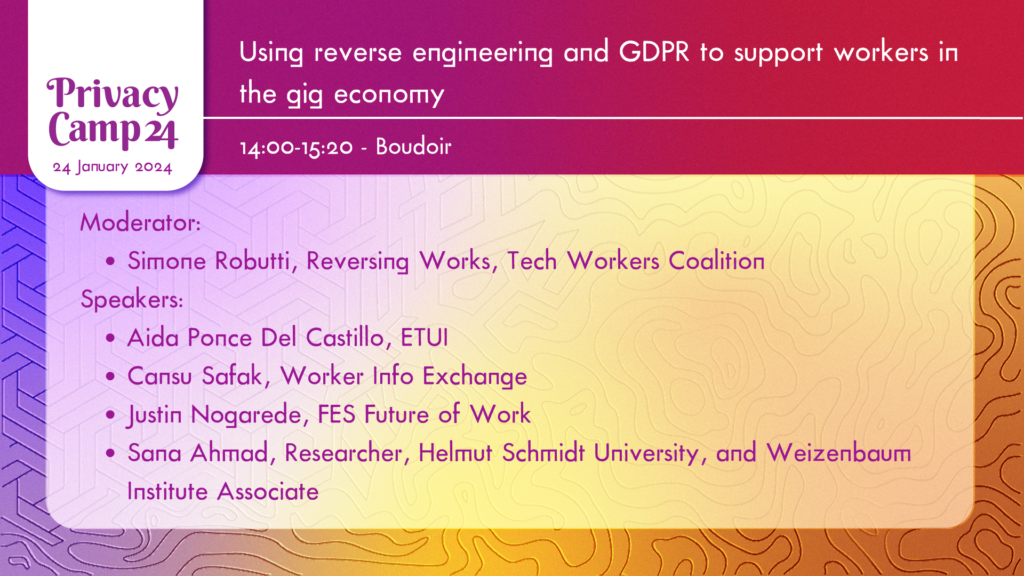
We want to inform the workers community about these advances and explain the limits of the current debate. We want to share advances in research and try to speak to an audience of potential links to local struggles, because the gap between digital rights and trade unionism is pretty wide, and it shouldn’t be. We think the question: “What systems remain invisible and under-discussed, and who benefits from these invisibilities?” is most relevant to our panel. the gig economy is a growing phenomenon, the platform directive may not offer greater protections, and collective bargaining too often focuses on contract terms. By using reverse engineering, we can add to the discussion the actual operation of the apps, exposing the business model and the data exploitation done on top of the workers’ activity. It is a panel that wants to connect the old trade union habits, and how we are to showing them the potential of GDPR-based litigation and technical investigations.
Our objective is to:
- To map/understand how much overlap/synergies are between digital rights activists and platform workers’ challenges.
- To exchange on grassroots approaches (our research at reversing.works and Worker info Exchange and your work).
- To see if/how the Platform Worker Directive will give us more tools
- To explore how can trade unions and workers practically use the Platform Worker Directive to challenge the power dynamics of the gig economy, and how can we do without it?
Moderator:
- Simone Robutti, Reversing Works, Tech Workers Coalition
Speakers:
- Aida Ponce Del Castillo, ETUI
- Cansu Safak, Worker Info Exchange
- Justin Nogarede, FES Future of Work
- Sana Ahmad, Researcher, Helmut Schmidt University, and Weizenbaum Institute Associate
